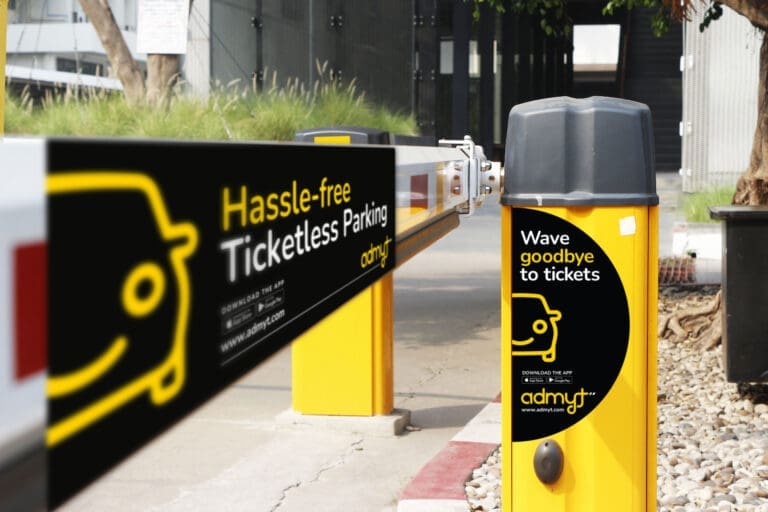Admyt is South Africa’s top digital parking platform, revolutionising the industry with License Plate Recognition (LPR) technology to deliver a seamless, ticketless, and cashless parking experience.
Since its founding in 2015 by Jordan Wainer, Admyt has eliminated the need for paper tickets, queues, and cash payments, offering a smarter alternative for office parks, residential centers, and shopping malls.
With over 70 active locations, 1,000+ lanes, and 400,000 registered vehicles, Admyt is rapidly expanding, partnering with major landlords like Hyprop and Growthpoint Properties.
But how does this homegrown innovator compare to global parking giants?
Admyt vs. Global Competitors: A Comparative Look
While global players like ParkMobile (US), JustPark (UK), and EasyPark (Europe) dominate their respective markets, Admyt stands out as Africa’s largest ticketless parking platform, tailored to local needs.
Unlike international platforms that often rely on app-based payments without full automation, Admyt’s LPR technology enables truly hands-free entry and exit, similar to highway e-tolls but for urban parking. This gives it an edge in convenience, particularly in high-traffic retail hubs like Sandton City and the V&A Waterfront.
Additionally, Admyt’s integration with landlords for parking validations and rewards offers a level of localised synergy that global platforms struggle to replicate in fragmented markets.
However, global competitors benefit from larger scales, ParkMobile operates in over 500 cities, while EasyPark spans 2,200+ locations worldwide.
These platforms also offer broader mobility integrations, such as EV charging and public transit links. Yet, Admyt’s rapid growth, doubling its user base and site count in two years, shows its potential to bridge this gap.
With partnerships covering 30,000+ bays and 80 million annual shoppers at Hyprop malls alone, Admyt is proving that hyper-local innovation can rival global reach.

Expansion, Partnerships and Future Plans
Admyt’s collaboration with JSE-listed Growthpoint Properties marks its strategic push into office and mixed-use properties, including prime Cape Town buildings like 33 Bree and The District.
Kfir Rusin, Admyt’s Co-CEO, emphasises scaling within South Africa first: “We’re expanding into premium malls, healthcare, and commercial hubs to become the default parking solution nationwide.”
Future plans include enhancing user rewards, loyalty integrations and landlord tools for revenue optimisation.
The platform’s success is evident in its footprint: 7 of SA’s top 10 malls, 10 million+ monthly license plate reads, and 15 million+ paper tickets saved.
Rusin confirms international expansion is on the horizon, but for now, Admyt is focused on entrenching its dominance locally.
“We’re building a globally competitive product from South Africa,” he says, a bold vision for a homegrown disruptor taking on the world.
Key Stats & Top Locations
-
70+ sites | 4 provinces | 1,000+ lanes
-
400K+ vehicles | 10M+ monthly scans | 15M+ tickets saved
Top Malls: Sandton City, Mall of Africa, V&A Waterfront, Canal Walk, Clearwater Mall & more.
Admyt’s blend of cutting-edge tech, strategic partnerships, and local expertise positions it as a formidable player, not just in Africa, but potentially on the global stage.
As Rusin puts it: “We’re only just getting started.”
With relentless innovation and a customer-first approach, Admyt is parking SA firmly on the digital mobility map.

Paperless Parking In Malls: South Africa vs. First-World Countries

The shift toward paperless parking systems is transforming the way shopping centres and malls manage vehicle access, payments, and security.
While first-world countries have rapidly adopted advanced digital parking solutions, South Africa is gradually catching up, facing unique challenges and opportunities.
This article explores how paperless parking systems compare between South Africa and developed nations.
What is Paperless Parking?
Paperless parking eliminates the need for physical tickets by using:
- License plate recognition (LPR)
- Mobile apps for payments
- SMS or QR code-based validation
- Contactless payments (NFC, Apple Pay, Google Pay)
This system improves efficiency, reduces congestion, and enhances security.

